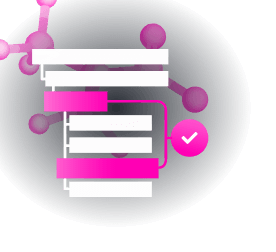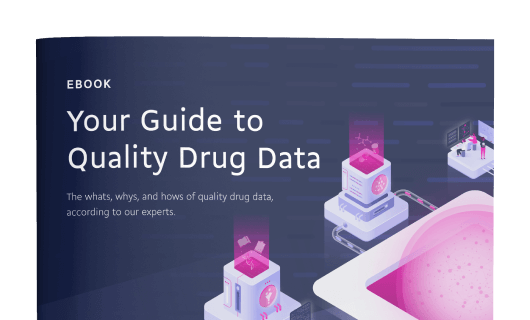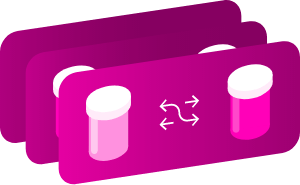Identification
- Generic Name
- GW-813893
- DrugBank Accession Number
- DB07278
- Background
Not Available
- Type
- Small Molecule
- Groups
- Experimental
- Structure
- Weight
- Average: 447.957
Monoisotopic: 447.068939916 - Chemical Formula
- C17H22ClN3O5S2
- Synonyms
- Not Available
- External IDs
- GW-813893
Pharmacology
- Indication
Not Available
 Reduce drug development failure ratesBuild, train, & validate machine-learning modelswith evidence-based and structured datasets.Build, train, & validate predictive machine-learning models with structured datasets.
Reduce drug development failure ratesBuild, train, & validate machine-learning modelswith evidence-based and structured datasets.Build, train, & validate predictive machine-learning models with structured datasets.- Contraindications & Blackbox Warnings
 Prevent Adverse Drug Events TodayTap into our Clinical API for life-saving information on contraindications & blackbox warnings, population restrictions, harmful risks, & more.Avoid life-threatening adverse drug events with our Clinical API
Prevent Adverse Drug Events TodayTap into our Clinical API for life-saving information on contraindications & blackbox warnings, population restrictions, harmful risks, & more.Avoid life-threatening adverse drug events with our Clinical API- Pharmacodynamics
Not Available
- Mechanism of action
Target Actions Organism UProthrombin Not Available Humans UCoagulation factor X Not Available Humans - Absorption
Not Available
- Volume of distribution
Not Available
- Protein binding
Not Available
- Metabolism
- Not Available
- Route of elimination
Not Available
- Half-life
Not Available
- Clearance
Not Available
- Adverse Effects
 Improve decision support & research outcomesWith structured adverse effects data, including: blackbox warnings, adverse reactions, warning & precautions, & incidence rates. View sample adverse effects data in our new Data Library!Improve decision support & research outcomes with our structured adverse effects data.
Improve decision support & research outcomesWith structured adverse effects data, including: blackbox warnings, adverse reactions, warning & precautions, & incidence rates. View sample adverse effects data in our new Data Library!Improve decision support & research outcomes with our structured adverse effects data.- Toxicity
Not Available
- Pathways
- Not Available
- Pharmacogenomic Effects/ADRs
- Not Available
Interactions
- Drug Interactions
- This information should not be interpreted without the help of a healthcare provider. If you believe you are experiencing an interaction, contact a healthcare provider immediately. The absence of an interaction does not necessarily mean no interactions exist.Not Available
- Food Interactions
- Avoid herbs and supplements with anticoagulant/antiplatelet activity. Examples include garlic, ginger, bilberry, danshen, piracetam, and ginkgo biloba.
Categories
- Drug Categories
- Chemical TaxonomyProvided by Classyfire
- Description
- This compound belongs to the class of organic compounds known as dipeptides. These are organic compounds containing a sequence of exactly two alpha-amino acids joined by a peptide bond.
- Kingdom
- Organic compounds
- Super Class
- Organic acids and derivatives
- Class
- Carboxylic acids and derivatives
- Sub Class
- Amino acids, peptides, and analogues
- Direct Parent
- Dipeptides
- Alternative Parents
- Alpha amino acids and derivatives / 2,5-disubstituted thiophenes / Pyrrolidine-2-ones / Organosulfonamides / Organic sulfonamides / Aryl chlorides / N-alkylpyrrolidines / Morpholines / Tertiary carboxylic acid amides / Aminosulfonyl compounds show 11 more
- Substituents
- 2,5-disubstituted thiophene / 2-pyrrolidone / Alpha-amino acid or derivatives / Alpha-dipeptide / Aminosulfonyl compound / Aromatic heteromonocyclic compound / Aryl chloride / Aryl halide / Azacycle / Carbonyl group show 29 more
- Molecular Framework
- Aromatic heteromonocyclic compounds
- External Descriptors
- Not Available
- Affected organisms
- Not Available
Chemical Identifiers
- UNII
- 1Y3JD5PEMS
- CAS number
- 478644-12-1
- InChI Key
- ACEFOQMQINFMRW-DYCFVMESSA-N
- InChI
- InChI=1S/C17H22ClN3O5S2/c1-12(16(22)20-7-9-26-10-8-20)21-6-4-14(17(21)23)19-28(24,25)11-5-13-2-3-15(18)27-13/h2-3,5,11-12,14,19H,4,6-10H2,1H3/b11-5+/t12-,14-/m0/s1
- IUPAC Name
- (1E)-2-(5-chlorothiophen-2-yl)-N-[(3S)-1-[(2S)-1-(morpholin-4-yl)-1-oxopropan-2-yl]-2-oxopyrrolidin-3-yl]ethene-1-sulfonamide
- SMILES
- C[C@H](N1CC[C@H](NS(=O)(=O)\C=C\C2=CC=C(Cl)S2)C1=O)C(=O)N1CCOCC1
References
Clinical Trials
- Clinical Trials
Phase Status Purpose Conditions Count 2 Withdrawn Prevention Venous Thromboembolism 1
Pharmacoeconomics
- Manufacturers
- Not Available
- Packagers
- Not Available
- Dosage Forms
- Not Available
- Prices
- Not Available
- Patents
- Not Available
Properties
- State
- Solid
- Experimental Properties
- Not Available
- Predicted Properties
Property Value Source Water Solubility 0.122 mg/mL ALOGPS logP 0.7 ALOGPS logP 0.39 Chemaxon logS -3.6 ALOGPS pKa (Strongest Acidic) 9.18 Chemaxon pKa (Strongest Basic) -3.1 Chemaxon Physiological Charge 0 Chemaxon Hydrogen Acceptor Count 5 Chemaxon Hydrogen Donor Count 1 Chemaxon Polar Surface Area 96.02 Å2 Chemaxon Rotatable Bond Count 5 Chemaxon Refractivity 105.35 m3·mol-1 Chemaxon Polarizability 44.43 Å3 Chemaxon Number of Rings 3 Chemaxon Bioavailability 1 Chemaxon Rule of Five Yes Chemaxon Ghose Filter Yes Chemaxon Veber's Rule No Chemaxon MDDR-like Rule No Chemaxon - Predicted ADMET Features
Property Value Probability Human Intestinal Absorption + 0.9973 Blood Brain Barrier + 0.6538 Caco-2 permeable - 0.6592 P-glycoprotein substrate Substrate 0.7226 P-glycoprotein inhibitor I Inhibitor 0.5424 P-glycoprotein inhibitor II Non-inhibitor 0.9909 Renal organic cation transporter Non-inhibitor 0.8462 CYP450 2C9 substrate Non-substrate 0.6036 CYP450 2D6 substrate Non-substrate 0.7988 CYP450 3A4 substrate Substrate 0.6142 CYP450 1A2 substrate Non-inhibitor 0.8064 CYP450 2C9 inhibitor Non-inhibitor 0.7036 CYP450 2D6 inhibitor Non-inhibitor 0.8545 CYP450 2C19 inhibitor Non-inhibitor 0.5328 CYP450 3A4 inhibitor Non-inhibitor 0.8239 CYP450 inhibitory promiscuity Low CYP Inhibitory Promiscuity 0.7929 Ames test Non AMES toxic 0.5788 Carcinogenicity Non-carcinogens 0.7976 Biodegradation Not ready biodegradable 0.8759 Rat acute toxicity 2.5672 LD50, mol/kg Not applicable hERG inhibition (predictor I) Weak inhibitor 0.7515 hERG inhibition (predictor II) Non-inhibitor 0.6017
Spectra
- Mass Spec (NIST)
- Not Available
- Spectra
Spectrum Spectrum Type Splash Key Predicted MS/MS Spectrum - 10V, Positive (Annotated) Predicted LC-MS/MS splash10-0002-0001900000-328016b827bb01107e8c Predicted MS/MS Spectrum - 10V, Negative (Annotated) Predicted LC-MS/MS splash10-0002-0001900000-30612f90d9927ccced2e Predicted MS/MS Spectrum - 20V, Positive (Annotated) Predicted LC-MS/MS splash10-0002-0203900000-a428e0c062b675ef5595 Predicted MS/MS Spectrum - 20V, Negative (Annotated) Predicted LC-MS/MS splash10-0k92-0429600000-6d6486b6ce4045f0f51e Predicted MS/MS Spectrum - 40V, Positive (Annotated) Predicted LC-MS/MS splash10-004r-1952300000-8e9955a7c1e5667e1883 Predicted MS/MS Spectrum - 40V, Negative (Annotated) Predicted LC-MS/MS splash10-02t9-2150900000-703dad52c252406298e6 Predicted 1H NMR Spectrum 1D NMR Not Applicable Predicted 13C NMR Spectrum 1D NMR Not Applicable - Chromatographic Properties
Collision Cross Sections (CCS)
Adduct CCS Value (Å2) Source type Source [M-H]- 183.08382 predictedDeepCCS 1.0 (2019) [M+H]+ 185.47939 predictedDeepCCS 1.0 (2019) [M+Na]+ 191.3919 predictedDeepCCS 1.0 (2019)
Targets

Build, predict & validate machine-learning models
Use our structured and evidence-based datasets to unlock newinsights and accelerate drug research.
Use our structured and evidence-based datasets to unlock new insights and accelerate drug research.
- Kind
- Protein
- Organism
- Humans
- Pharmacological action
- Unknown
- General Function
- Thrombospondin receptor activity
- Specific Function
- Thrombin, which cleaves bonds after Arg and Lys, converts fibrinogen to fibrin and activates factors V, VII, VIII, XIII, and, in complex with thrombomodulin, protein C. Functions in blood homeostas...
- Gene Name
- F2
- Uniprot ID
- P00734
- Uniprot Name
- Prothrombin
- Molecular Weight
- 70036.295 Da
References
- Berman HM, Westbrook J, Feng Z, Gilliland G, Bhat TN, Weissig H, Shindyalov IN, Bourne PE: The Protein Data Bank. Nucleic Acids Res. 2000 Jan 1;28(1):235-42. [Article]
- Kind
- Protein
- Organism
- Humans
- Pharmacological action
- Unknown
- General Function
- Serine-type endopeptidase activity
- Specific Function
- Factor Xa is a vitamin K-dependent glycoprotein that converts prothrombin to thrombin in the presence of factor Va, calcium and phospholipid during blood clotting.
- Gene Name
- F10
- Uniprot ID
- P00742
- Uniprot Name
- Coagulation factor X
- Molecular Weight
- 54731.255 Da
References
- Berman HM, Westbrook J, Feng Z, Gilliland G, Bhat TN, Weissig H, Shindyalov IN, Bourne PE: The Protein Data Bank. Nucleic Acids Res. 2000 Jan 1;28(1):235-42. [Article]
Drug created at September 15, 2010 21:20 / Updated at July 14, 2020 10:58

